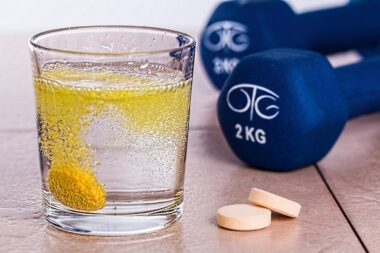Understanding Post-Workout Nutritional Interventions
Post-workout nutrition is crucial for athletes seeking effective recovery. The right interventions help repair muscle damage, restore glycogen levels, and enhance overall performance. Several case studies illustrate the impact of specific nutritional strategies on injury recovery. In a study conducted with professional football players, researchers evaluated the effects of protein supplementation immediately after workouts. Results showed significant improvements in muscle recovery and reduced soreness. Additionally, carbohydrates paired with protein were found vital in replenishing glycogen stores. Another case study involved endurance athletes, who utilized a combination of electrolytes and protein post-training. Their recovery times improved, leading to enhanced performance in subsequent sessions. Furthermore, the timing of nutrient intake plays a critical role; consuming nutrients within a specific window post-exercise fosters maximum muscle repair. Nutrition education, therefore, is essential in optimizing athletic performance. Athletes must understand their body’s unique needs and adjust their nutritional strategies accordingly. Tailoring post-workout nutrition plans based on individual goals enhances recovery efficiency, performance, and overall health. In conclusion, evidence from various studies supports the idea that targeted nutritional interventions significantly affect recovery from exercise-related injuries and lead to improved athletic performance.
Further analysis of post-workout nutrition has provided insights into source quality. A case study on collegiate athletes showed that high-quality protein sources, such as lean chicken, fish, and plant-based options, led to superior recovery compared to lower quality. The athletes who prioritized whole food sources exhibited better muscle hypertrophy, strength retention, and reduced fatigue. Conversely, those relying on processed protein shakes reported fewer positive outcomes regarding soreness and recovery speed. Hydration also emerged as a significant factor; athletes consuming adequate fluids showed improved recovery metrics. In a cross-sport comparison, swimmers significantly benefited from an optimized hydration protocol—demonstrating that dehydration hampered recovery. Additionally, incorporating antioxidants through post-workout meals aids in reducing inflammation, thus enhancing recovery outcomes. Berries, nuts, and green leafy vegetables proved beneficial in various studies. **In summary**, these interventions highlighted the importance of comprehensive nutritional strategies that go beyond macronutrient ratios. Educating athletes on food quality and optimal hydration strategies leads to better recovery rates. The correlation between nutrition and injury recovery underscores why athletes must develop robust post-workout nutritional plans tailored to their unique needs and sport-specific demands.
The Role of Supplements
Supplements play a pivotal role in post-workout recovery, complemented by whole-food sources. Various studies highlight how branched-chain amino acids (BCAAs) aid muscle recovery. One such case study on weightlifters demonstrated that BCAA supplementation reduced muscle soreness effectively. Additionally, other athletes reported better endurance and less perceived fatigue. Another supplement, creatine, was evaluated in a group of football players. Findings indicated that creatine monohydrate not only improved strength but also enhanced recovery when taken post-exercise. Furthermore, omega-3 fatty acids displayed anti-inflammatory properties in numerous case studies, showcasing a reduction in exercise-induced muscle damage. Successful intervention strategies often integrate supplements into holistic techniques, considering macronutrient intake timing and fluid replenishment. However, the contentious issue arises regarding reliance on supplements versus nutritious foods. Many experts advocate for a food-first approach, utilizing supplements primarily to fill gaps. Creating individualized supplement plans according to specific goals and training regimens is crucial. It’s essential to consider unique needs based on the type or intensity of physical activity. Athletes must proceed with caution and consult healthcare professionals when considering supplementation to maximize their benefits.
Moreover, the impact of psychological factors on post-workout nutrition cannot be overlooked. A study involving yoga practitioners revealed that mindfulness significantly enhanced their approach to recovery nutrition. Practitioners became more attuned to their bodies’ signals, enabling them to select nutrient-dense foods and listen to hunger cues effectively. Additional research highlighted the correlation between stress management and nutrient absorption efficiency. Athletes experiencing high stress levels often faced challenges in processing nutrients effectively, leading to prolonged recovery times. Implementing mental wellness practices alongside nutrition education emerged as beneficial for overall recovery. Simple techniques like deep breathing, visualization, or a gratitude journal supported better biological responses to nutrition. Leaders in sports nutrition constantly emphasize that the psychological aspect may have as much influence as the dietary intervention itself. A comprehensive recovery plan includes not just food and supplements but also mental practices. This holistic approach can significantly reduce injury risk and improve long-term athletic performance. Athletes are encouraged to incorporate relaxation techniques and mindfulness practices to achieve better nutritional outcomes. Overall, blending mental and physical well-being is a winning strategy for recovery success.
Research on Timing and Frequency
Research into nutrient timing has gained traction, emphasizing when athletes should consume their post-workout meals. Recent studies investigated the benefits of frequent nutrient intake versus traditional meal patterns. Athletes who consumed smaller, more frequent post-workout snacks showed favorable outcomes in muscle recovery and reduced soreness rates. One case study focusing on endurance athletes concluded that snacking every two hours post-exercise resulted in improved glycogen restoration and lower fatigue. Another key finding revealed a heightened insulin response positively correlates with muscle repair when protein and carbohydrates are consumed close to the recovery window. Interestingly, a diverging approach of higher frequency meals worked better than large amounts consumed infrequently. However, athletes must adapt their meal timing based on training intensity, duration, and individual tolerance. Overemphasis on timing alone can lead to anxiety regarding food intake. Therefore, integrating individualized meal plans that consider timing alongside quality and quantity is paramount for efficacy. Education on optimal post-workout nutrition must lay emphasis on personal preferences and lifestyle. Athletes gain more from understanding how interval timing aligns with their unique body demands and training regimens to enhance recovery and performance significantly.
In addition to timing, the understanding of macronutrient ratios remains important. Several case studies have examined the effects of varying carbohydrate-to-protein ratios on recovery outcomes. Research highlighted that a 3:1 carbohydrate to protein ratio showed superior results in glycogen replenishment for endurance athletes. In contrast, strength athletes experienced benefits from a higher protein intake. These findings inform athletes about how their sports-specific demands require tailored macronutrient strategies. One concrete example involved a high-intensity training program that emphasized higher protein intake pre- and post-exercise. Athletes on this regimen experienced better strength retention and recovery, demonstrating the importance of aligning nutrition with workout goals. Conversely, others observed diminishing returns from excess carbohydrates without accompanied protein. Understanding how body composition affects nutrient needs further elucidates the necessity for individualized plans. Athletes must continually assess their recovery progress against nutritional strategies to optimize performance. As research evolves, it’s evident that maintaining an adaptable approach to macronutrient ratios plays a significant role in recovery strategies tailored to specific sport requirements.
Case Studies in Injury Recovery
Recent case studies have pioneered ways post-workout nutrition supports effective injury recovery. A prominent example illustrates how one professional basketball player benefited from targeted nutritional interventions following a significant injury. After a tibial fracture, implementing high-protein diets proved critical in stimulating muscle repair around the affected area. Enhanced amino acid intake appeared instrumental during his recovery phases, leading to quicker rehabilitation. Similarly, another case study involving a runner recovering from a knee injury demonstrated that micronutrients, specifically vitamins C and D, played a crucial role in tissue regeneration. By modifying her diet to include specific food sources rich in these nutrients, recovery speed markedly improved. These cases highlight the synergistic effects of macronutrients, vitamins, and minerals in supporting recovery dynamically. The take-home message from these case studies is that nutrition serves as a key component of an athlete’s return-from-injury process. Insufficient dietary intake can pose barriers to healing. Therefore, comprehensive nutritional assessments should accompany injury treatment plans to foster quicker recoveries. Athletes and coaches must prioritize injury-specific nutrition strategies that go beyond standard recovery protocols for optimal results.
Additionally, incorporating qualitative data from athletes’ experiences reveals insights into nutrition-related injury recovery. In discussions with athletes experiencing injuries, personal accounts indicated that tailored nutritional approaches made significant differences. Anecdotes provided valuable information about what foods energized, motivated, and facilitated recovery processes. Case studies further explore individualized interventions based on athlete feedback and preferences. One example showcased two athletes recovering from shoulder injuries; one included high-fat foods like avocados and nuts, while the other focused on carbohydrate-rich sources. Despite different dietary approaches, both found that they responded positively to their respective nutrition preferences. This subjective experience underlines the importance of personalizing recovery nutrition based on taste preferences and lifestyle. A collaborative approach where athletes work with nutritionists simplifies the formation of effective dietary plans. Thus, integrating athlete experiences into research provides a fuller perspective on the intricate landscape of nutrition and injury recovery. Understanding individual preferences coupled with scientific recommendations results in a more effective recovery process post-injury. Ultimately, nutrition remains a vital pillar influencing athletes’ journeys towards optimal health and performance.





